CANNIBALsteria: Best Haiti Memes (Mostly Peaceful Cannibals...🍖)
You will have to go to the source to watch some of the videos...
CANNIBALsteria: Best Haiti Memes (Mostly Peaceful Cannibals...🍖)
Cannibal migrants can't wait to feast on sanctuary city cuisine, when Conan O’Brien proved Haiti is not a sh*thole, of course the Clintons are involved in this mess and more Haiti memes!
You are probably wondering how this could be happening given how Obama and the Clinton Foundation had fixed the country plus Conan O’Brien went there a few years ago to “prove” it’s not a sh*thole…………
Years ago, I remember Rush Limbaugh having either a graphic on his short-lived TV show or on his radio show reading off the fates of various Haitian presidents/dictators/self-proclaimed kings through the years… If I recall, at least one was dismembered, and I think eaten by an angry crowd with most of the others meeting similar violent fates…
I should point out that most of us have ancestors who probably came from sh*thole countries e.g. Ireland was not so nice under the British during the potato famine… And there are good reasons why countries are or remain sh*tholes…
I remember having read this VERY INTERESTING and lengthy interview from the early-to-mid 1990s with these excerpts being particularly enlightening for how things work in sh*thole places like Haiti work and how they will soon work in places like the USA if the globalists get their way:
Interview
AN INSIDE LOOK AT HAITI’S BUSINESS ELITE
An Interview with Patrick James
Patrick James is the alias of a U.S. businessperson who previously lived and worked in Haiti. This interview was conducted prior to the negotiated ouster of the illegal Haitian military government and the restoration of President Jean-Bertrand Aristide, but it remains relevant and timely for the insights it provides about class divisions, power, exploitation and human rights in Haiti.
Multinational Monitor: How would you characterize the Haitian business class as a community?
Patrick James: The interconnectedness of the Haitian business community is amazing. I worked for a company and the guy right across the hallway from me, one of the partners, was General Cedras’s brother; the other was a European businessman. My company had one partner whose sister is married to the European businessman, who’s in business with Cedras’s brother. The elite are somehow interconnected or related. Basically they have to work together in order to keep their power intact.
You can imagine what kind of pressure that must be when you know that there are six million peasants that basically could rise up and tear your house down some night, which, also, I experienced. I’ve witnessed what they call dechoukage where they just basically firebomb, loot and gut a house. Its a terrifying thing.
This is always in the mind of the elite Haitians. They ride around in their armored vehicles, they have their Uzis in their house. It’s not uncommon to hear machine gun fire when you’re in Port-au-Prince just because there’s a thief trying to break in somewhere. And you’d better believe these rich people have got machine guns. The poorest Haitians cannot rise up. I mean there will not be a revolution in Haiti because you cannot fight these machine guns with sticks and rocks and machetes. There’s only so far you can fight.
MM: Where do the U.S. businesses fit into that whole picture economically and politically? Are they part of that elite?
James: The rich Haitian families basically run their own empires. You have partnerships with American businessmen, European businessmen that are very lucrative because you have a monopoly situation in Haiti. There are only a certain amount of players, and if you can provide something that no one else can provide, you’re in. If you have a sister-in-law that’s, say, from Vietnam or Thailand who has connections who can get you all the rice you want to import, then you’re the guy that owns the rice market in Haiti.
MM: Does the U.S. business community fear an uprising?
James: I don’t think the American business community has to worry about it as much, because they have got less to lose, they’ve got a place they can fly away to. It’s the Haitian business community that basically keeps the system in place.
Of course, if you’re an American businessman and you’re offered to become a part of this system where your risks are much lower than they are for the average Haitian businessperson but your profits are equal, of course you’re going to buy into the system. It’s a good deal. In Haiti, I was making about $800,000 or $900,000 a year. I lived in the lap of luxury, with a huge estate with gardens, gardeners, maids, cooks, laundry women. It was a lifestyle that would take me a lot more work to accomplish in the United States.
MM: How profitable are the U.S. companies that have assembly operations in Haiti?
James: These companies benefit from Caribbean Basin Initiative tax incentives for companies that import materials from the United States and then process them in Haiti and send them back. And of course being able to take advantage of the labor costs in Haiti is very advantageous. As far as the profits they take out, I would only be speculating.
How dare those greedy POSs demand $5 a day!!!:
MM: Did you have a sense of how the U.S. embassy or U.S. business people felt about Aristide’s coming to power, and the whole popular movement?
James: I think there was worry about how far Aristide was pushing, especially for a minimum wage, trying to set up a social security system, things like this.
When Aristide first came in he said, “There’s going to be a mandatory $5 minimum [daily] wage, everybody has got to do it.” It was just so outlandish that nobody even took it seriously. You figure the average Haitian probably makes about 20 dollars a month, so you’re talking about five dollars a week to five dollars a day!
Butttt sanctions work!!!:
MM: What kind of profits do local business people usually make?
James: I would say the average retailer will make something like a 60 percent profit. As far as importing and then distributing, a lot depends on the currency exchange. Right now [during the embargo], profits may be as high as 400 percent — that’s just the law of supply and demand. When you have sanctions that are limiting the supply, of course your prices are going to increase.
Now that you know the basic economic model that the globalists plan to implement in the USA etc, it’s time for some Haiti memes…
Conan O’Brien sure showed them…:
According to their website, the Wahoo Bay boasts a tennis court, spa, air-conditioned rooms, flat screen TVs, horseback riding, jet skiing, and complimentary WiFi.
A single night at O’Brien’s chosen lodging in Haiti costs $254.
According to World Bank, more than 59 percent of Haitians lives under the national poverty line of US$2.41 a day, while 24 percent of the population lives under the extreme poverty line of $1.23 a day, or $448.95 a year.
One night at the Wahoo Bay costs more than half the annual income of a quarter of Haitians.
Twitter users gently reminded O’Brien how the other half lives on the island nation.
😬😬😬
Netflix idea:
Oh no!!!:
Maybe they could solve our illegal immigrant problem!!!:
Hmmm no…:
Yes!!!:
Paul Joseph Watson…:
TRUMP WAS RIGHT ABOUT HAITI, Cannibal Gang Leader Takes Over, Conan Obrien SLAMMED For Haiti Lies:
I posted this before… a commercial from Eastern Europe:
Roast???😬:
I will give that deal a pass……….:
Of course, the Clintons are involved in this mess…:
Of course he would…:
Where have I heard this before???:
The final word and NOPE……..:




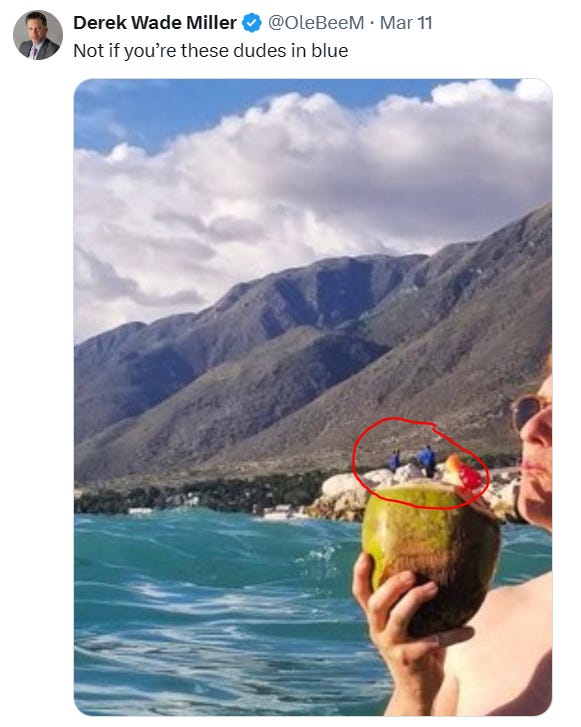




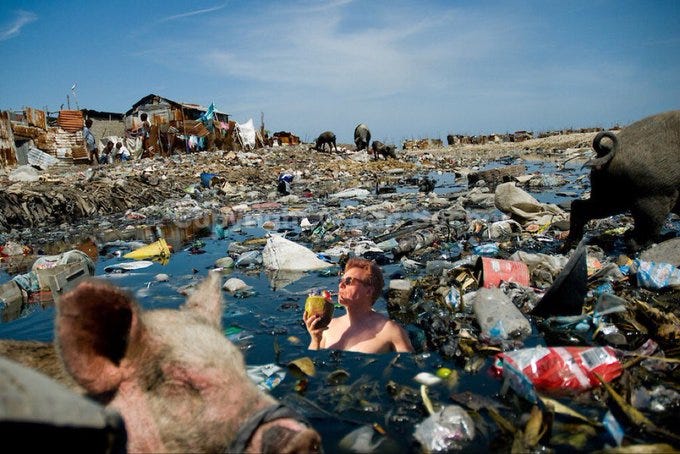
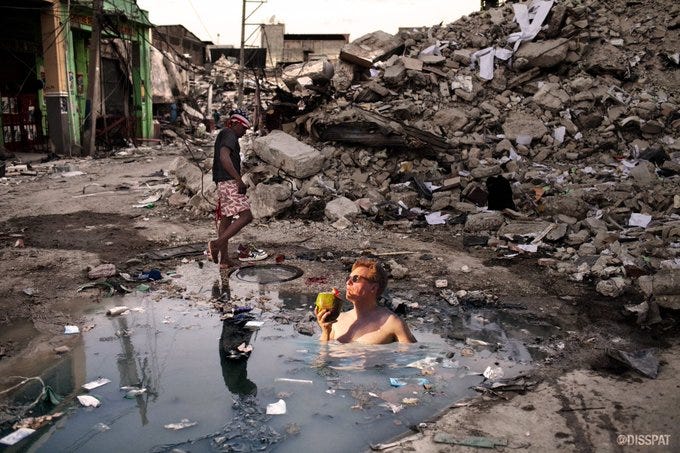
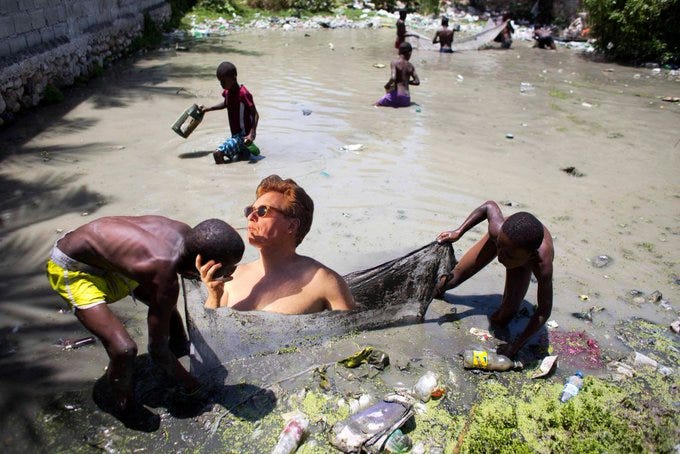

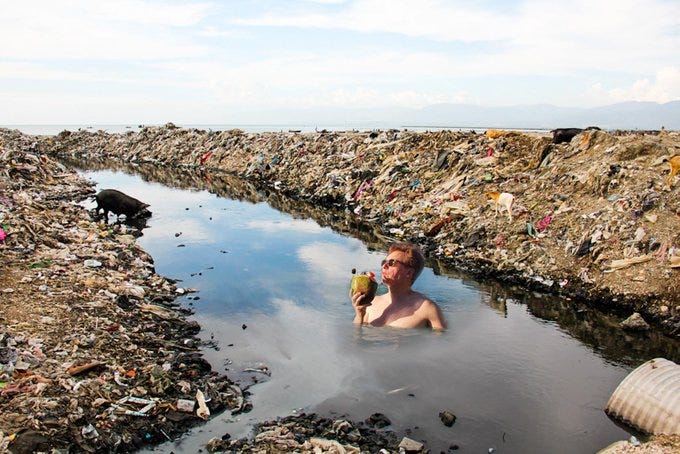





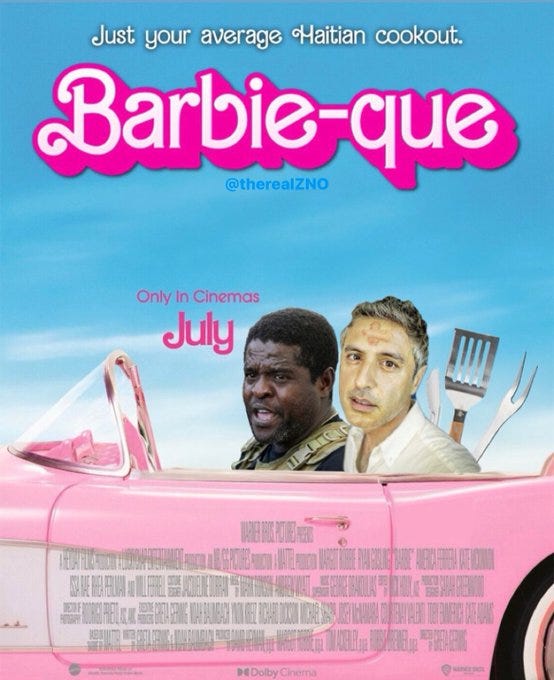


















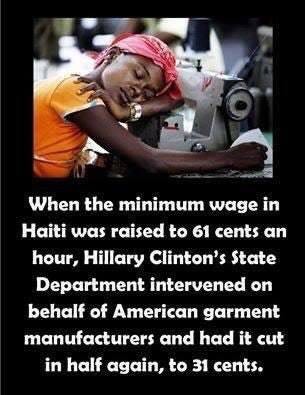

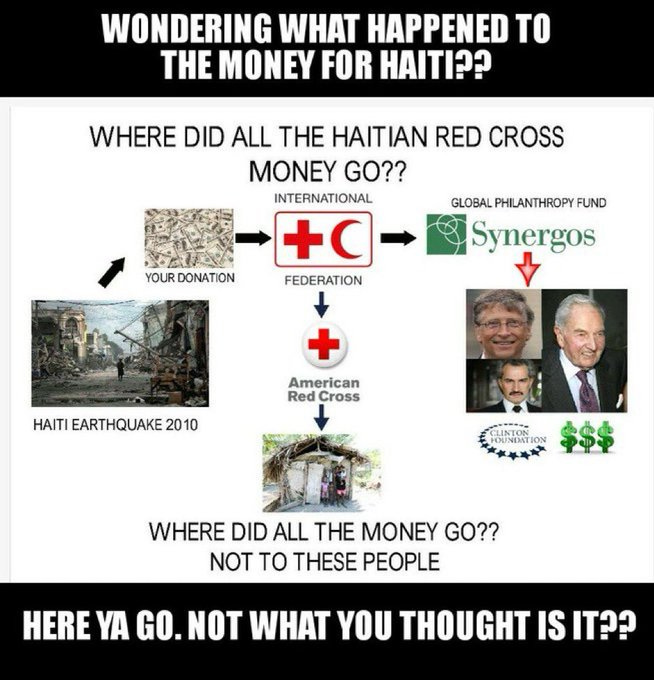







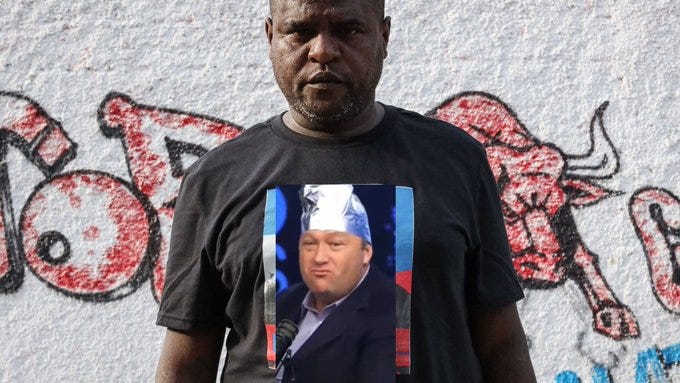



Comments
Post a Comment